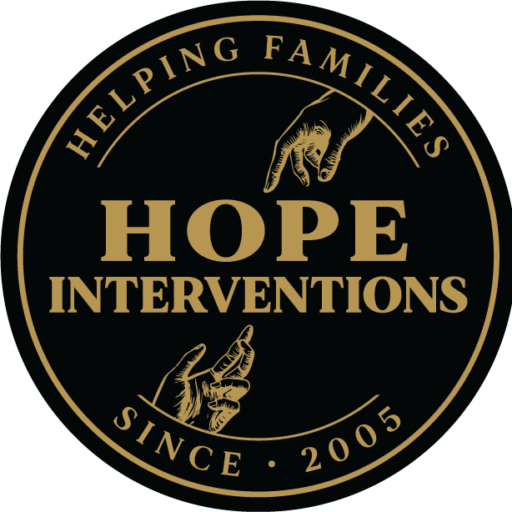Drug addiction is a crisis that affects not only the individual struggling with substance abuse, but also their family and loved ones. When someone you care about is deep in the throes of addiction, it can be overwhelming to know how to approach them and offer help. At Hope Interventions, we understand the delicate nature of this situation and are here to provide guidance on how to conduct an effective and compassionate intervention. Here’s a step-by-step guide on how to approach a loved one in crisis and navigate this crucial step towards recovery.
Recognizing the Need for an Intervention
Severe Behavioral Changes
Noticeable shifts in behavior, such as erratic actions, withdrawal from loved ones, or engaging in risky activities, can be indicators that your loved one’s addiction is reaching a critical point.
Health and Safety Concerns
Significant declines in physical health, such as weight loss, poor hygiene, or signs of overdose, are serious red flags that indicate a need for immediate intervention.
Impact on Daily Life
If the addiction is causing severe disruptions in their ability to perform daily tasks, maintain employment, or manage personal responsibilities, it’s a sign that intervention is needed.
Repeated Attempts at Recovery
If your loved one has tried to quit using drugs multiple times without success, it may be time for a more structured and supportive approach to treatment.
Preparing for the Intervention
Gather Information
Educate yourself about addiction and treatment options. Understanding the nature of addiction and available resources will help you communicate more effectively and offer informed support.
Assemble a Support Team
Identify and involve key family members and close friends who are also concerned about the individual. A unified approach will demonstrate the collective concern and support for the person struggling with addiction.
Plan the Intervention
Work with a professional interventionist or counselor to develop a structured intervention plan. This plan should include the specific issues to address, the treatment options to present, and the overall approach to ensure the conversation remains focused and constructive.
Prepare Statements
Each participant in the intervention should prepare a personal statement that outlines their observations, feelings, and concerns about the addiction. This helps to convey genuine care and avoids placing blame or creating defensiveness.
Conducting the Intervention
Choose the Right Time and Place
Select a time when your loved one is sober and calm. The setting should be private and free from distractions, ensuring that the conversation remains focused and respectful.
Express Concerns with Compassion
Begin the intervention by expressing your concerns and feelings in a compassionate manner. Use “I” statements to avoid sounding accusatory, such as “I am worried about your health” or “I feel sad seeing you struggle.”
Present the Impact
Clearly outline how the addiction is affecting their lives, relationships, and future. Be honest but gentle, emphasizing that your goal is to support them in getting help.
Offer Solutions
Present concrete treatment options and resources, such as rehabilitation programs, counseling, or support groups. Provide a clear plan for how they can begin their recovery journey immediately.
Set Boundaries
Clearly communicate any boundaries or changes in behavior you will enforce if they choose not to seek help. This helps to reinforce the seriousness of the situation and the need for change.
Supporting Recovery
Follow Through
If your loved one agrees to seek help, assist them in making arrangements for treatment and ensure they have the necessary support to start their recovery journey.
Provide Ongoing Support
Recovery is a long-term process that requires continuous support. Stay involved in their treatment and offer encouragement throughout their journey.
Seek Professional Help
Encourage your loved one to engage in professional counseling and therapy. Professional support is crucial in addressing the underlying issues of addiction and maintaining long-term sobriety.
Take Care of Yourself
Supporting someone through addiction can be emotionally taxing. Make sure to take care of your own mental and emotional well-being by seeking support and maintaining healthy boundaries.
How Hope Interventions Can Assist
At Hope Interventions, we specialize in guiding families through the challenging process of drug addiction interventions. Here’s how we can help:
Professional Consultation
We provide expert consultation to assess the situation and develop a tailored intervention plan that addresses the unique needs of your loved one and your family.
Facilitation and Support
Our experienced interventionists facilitate the intervention, ensuring that it is conducted with sensitivity and effectiveness. We guide you through the process, keeping the conversation focused and compassionate.
Resource Navigation
We assist in identifying and accessing appropriate treatment options and resources, making the transition to recovery as smooth as possible.
Ongoing Support
We offer continued support and follow-up services to help your loved one through the recovery process and provide guidance to your family as needed.
Conclusion
Approaching a loved one in crisis due to drug addiction is a challenging but crucial step toward recovery. With careful preparation, compassionate communication, and professional support, you can help guide your loved one towards the help they need. At Hope Interventions, we are dedicated to providing the expertise and support necessary to make this process as effective and compassionate as possible.
If you’re considering an intervention for a loved one struggling with drug addiction, don’t hesitate to reach out for help. Contact Hope Interventions to discuss your situation, receive guidance on the intervention process, and take the first step toward a hopeful future. We are here to support you every step of the way.

